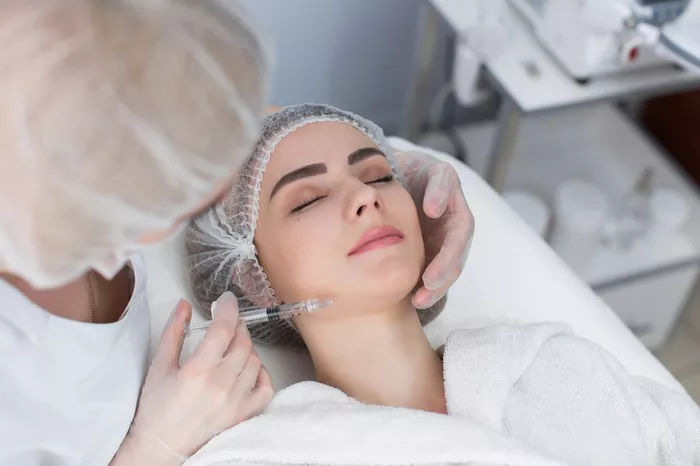In the quest for flawless and healthy skin, individuals often turn to various skincare products and supplements to accelerate the healing process. Among these, Vitamin E has gained significant attention for its purported ability to promote skin healing. This article aims to delve into the scientific evidence surrounding the question: Does Vitamin E truly help the skin heal?
The Role of Vitamin E in Skin Health
Antioxidant Defense:
Neutralizing Free Radicals: Vitamin E, a potent antioxidant, scavenges free radicals generated by exposure to UV radiation and environmental pollutants.
Protection from Oxidative Stress: By preventing lipid peroxidation, Vitamin E contributes to cellular membrane integrity, safeguarding skin cells from damage.
Anti-Inflammatory Properties:
Modulating Inflammation: Vitamin E regulates pro-inflammatory cytokines, such as interleukin-1 and tumor necrosis factor-alpha.
Reducing Inflammation: This anti-inflammatory effect can mitigate skin redness, swelling, and discomfort.
Collagen Synthesis Support:
Collagen Formation: Vitamin E is implicated in the regulation of collagen synthesis, a critical factor in maintaining skin elasticity and structure.
Fibroblast Stimulation: Vitamin E may stimulate fibroblasts, the cells responsible for producing collagen, supporting skin firmness and resilience.
Wound Healing Acceleration:
Cellular Proliferation: Vitamin E can enhance the proliferation of epithelial cells, expediting wound closure.
Tissue Repair Promotion: By facilitating angiogenesis, the formation of new blood vessels, Vitamin E promotes an optimal environment for tissue repair.
Photoprotection against UV Damage:
UVB and UVA Protection: Vitamin E acts as a photoprotective agent, mitigating the harmful effects of both UVB and UVA radiation.
Sunburn Prevention: By absorbing UV rays, Vitamin E helps prevent sunburn and limits the associated DNA damage.
The Mechanism of Skin Healing
The mechanism of skin healing is a sophisticated process involving intricate cellular and molecular events. Initiated by tissue injury, the inflammatory phase serves to cleanse the wound site and initiate repair through the release of signaling molecules. Subsequently, the proliferative phase involves cellular reproduction, angiogenesis for new blood vessel formation, and collagen production by fibroblasts. The remodeling phase orchestrates the realignment of collagen fibers and the formation of scars, ensuring tissue strength and integrity. Key cellular players, including fibroblasts, keratinocytes, and macrophages, play pivotal roles in orchestrating these phases. Growth factors like Transforming Growth Factor-Beta (TGF-β) and Epidermal Growth Factor (EGF) stimulate collagen production and cell proliferation, respectively. Moreover, oxidative stress and free radicals generated during inflammation are counteracted by the antioxidant defense system. This intricate cascade of events forms the foundation for understanding how skin heals and provides a comprehensive framework for evaluating interventions such as Vitamin E in the context of skin healing.
The Antioxidant Power of Vitamin E
Vitamin E and Collagen Synthesis
Collagen, a structural protein in the skin, plays a crucial role in wound healing and maintaining skin elasticity. Vitamin E has been suggested to influence collagen synthesis, potentially accelerating the recovery of damaged skin. This segment will dissect the studies that investigate the relationship between Vitamin E and collagen production, shedding light on its impact on the skin’s structural integrity.
Potential Risks and Considerations: Is Vitamin E a Double-Edged Sword?
1. Skin Sensitivity:
Risk: Some individuals may develop skin irritation or allergic reactions to topical Vitamin E.
Consideration: Patch tests before widespread use can help identify potential sensitivities.
2. Excessive Dosage:
Risk: High doses of oral Vitamin E supplements may lead to toxicity, causing adverse effects.
Consideration: Adhere to recommended daily allowances and consult healthcare professionals for guidance.
3. Interaction with Medications:
Risk: Vitamin E can interact with certain medications, affecting their efficacy.
Consideration: Consult healthcare providers to assess potential interactions, especially for those on blood-thinning medications.
4. Potential for Photosensitivity:
Risk: Topical Vitamin E may increase sensitivity to sunlight.
Consideration: Use sunscreen when incorporating Vitamin E into daytime skincare routines to mitigate potential sun damage.
5. Acne and Pore Clogging:
Risk: Vitamin E-rich formulations may exacerbate acne or clog pores in some individuals.
Consideration: Choose non-comedogenic products and monitor skin reactions closely.
6. Pre-existing Skin Conditions:
Risk: Individuals with certain skin conditions may experience worsened symptoms.
Consideration: Consult with dermatologists to evaluate potential risks and benefits tailored to specific skin conditions.
7. Vitamin E Supplementation Concerns:
Risk: Oral supplementation may not be suitable for everyone, particularly those with certain health conditions.
Consideration: Obtain professional advice before incorporating Vitamin E supplements into your routine.
Integrating Vitamin E into Skincare
1. Product Selection:
Choose skincare products with stabilized and bioavailable forms of Vitamin E.
Look for formulations combining Vitamin E with other skin-friendly ingredients for enhanced efficacy.
2. Dosage Considerations:
Follow recommended dosage guidelines for oral Vitamin E supplements.
Pay attention to the concentration of Vitamin E in topical products, ensuring it aligns with your skin’s needs.
3. Consistency is Key:
Establish a consistent skincare routine, whether topical application or oral supplementation.
Regular use enhances the potential benefits of Vitamin E for skin healing.
4. Patience and Persistence:
Results may take time; be patient and persistent in your skincare regimen.
Allow sufficient time for Vitamin E to exhibit its effects on skin healing.
5. Sun Protection:
Combine Vitamin E usage with adequate sun protection measures. Sunscreen application is crucial to prevent UV damage, especially during Vitamin E-based skincare routines.
In conclusion, the question of whether Vitamin E helps skin heal is nuanced, with scientific evidence offering insights into its potential benefits and considerations. By unraveling the mechanisms, exploring clinical studies, and understanding practical applications, individuals can make informed decisions when incorporating Vitamin E into their skincare regimen. While Vitamin E holds promise for skin healing, a holistic approach to skincare that considers individual needs and circumstances remains paramount.
[inline_related_posts title=”You Might Be Interested In” title_align=”left” style=”list” number=”6″ align=”none” ids=”4466,4397,4426″ by=”categories” orderby=”rand” order=”DESC” hide_thumb=”no” thumb_right=”no” views=”no” date=”yes” grid_columns=”2″ post_type=”” tax=””]
































